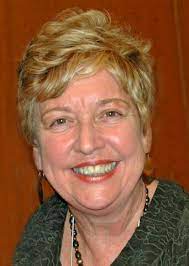Deb Pickett Celebrates Women’s Law Project Director Carol Tracy
In 1992, as a college sophomore, I had the good fortune to intern for the Women’s Law Project in Philadelphia, a nonprofit public interest legal organization focused on policy advocacy, public education and providing direct assistance to defend and advance the rights of women, girls and LGBTQ+ people in Pennsylvania and beyond. Attorney and activist Carol Tracy had recently taken the helm as executive director there and would appear that year before the Supreme Court, with co-counsel Kitty Kolbert, to argue Planned Parenthood v. Casey.
I pursued this internship because I relished the chance to enter the orbit of a woman I deeply admired as a feminist champion and legal icon. Even as a starry-eyed undergraduate, I understood that I probably would never have the chance to actually talk to her. One doesn’t “talk” to the superhero preparing to defend women’s access to reproductive health care at the highest court in the land. Instead, I merely hoped to observe and learn as Carol and others did great things.
I was right that big constitutional questions gave Carol Tracy and her Women’s Law Project its mission, but I was wrong that these lofty pursuits occupied all of her time. Instead, I and my fellow interns learned that the WLP focused its day-to-day energy on directly serving women and women’s health clinics. We assisted the attorneys in answering calls to WPL’s hotline, mainly from women facing difficult issues in family court around child support or orders of protection from abusive partners. While we were not lawyers and therefore could not offer legal advice, we could triage the calls and direct the women to resources that could help them. The WLP also assisted women’s health clinics in obtaining restraining orders against the busloads of Operation Rescue protestors who descended on the city that summer ahead of the Supreme Court case to harass patients and block access to the clinics. These orders dictated the distance at which the protestors had to stand from the doors. Intern and staff members took tape measures out to the site to make sure the protestors were following the judges’ orders to the inch.
Carol saw all of this work — the sophisticated, academic legal arguments and the small but crucial tasks, such as helping a domestic abuse survivor locate her husband’s social security number so that the woman could pursue child support — as part of her job, and she understood that all these tasks were of equal importance. Winning at the Supreme Court could have implications for millions of women, but helping a woman in crisis meant even more to that one woman, and to the people she cared about, than anything happening in Washington.
Carol also understood that the best way to help us interns — mostly Ivy League-educated and privileged young women — learn about the work was to have us roll up our sleeves and dive in. Looking back, I see that this was both intimidating and energizing. She believed that we were capable of more than we knew, and she was right. Working for Carol was an eye-opening experience that helped us clarify our personal principles, and make decisions for our future careers.
One of the most striking things I noticed about Carol was that she was unflappable in every aspect of her work. Despite the incredible pressure she was under, despite the high visibility of her work and the unending threats from anti-choice protestors, she found joy in the midst of the fight. She made time to talk with all of us and learn our stories, and she made time for virtually every woman who called the WLP. Things were relatively bleak and dire in many ways during that period, the need so great, the stakes so high for the women she served, and yet Carol made the WLP a happy, productive place to work, where we all found meaning in even the smallest tasks. She taught us to see how all of it mattered, and that we could make a difference.
This Women’s History Month, it is with true gratitude that I look back on my time learning from Carol, who recently announced her retirement after 31 years as executive director of the WLP. Her activism and mentorship impacted my life in countless ways, and I bring her many lessons with me to work each day in leading the Page 2 team and serving our clients.

